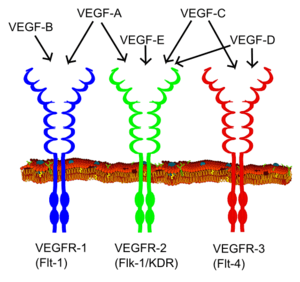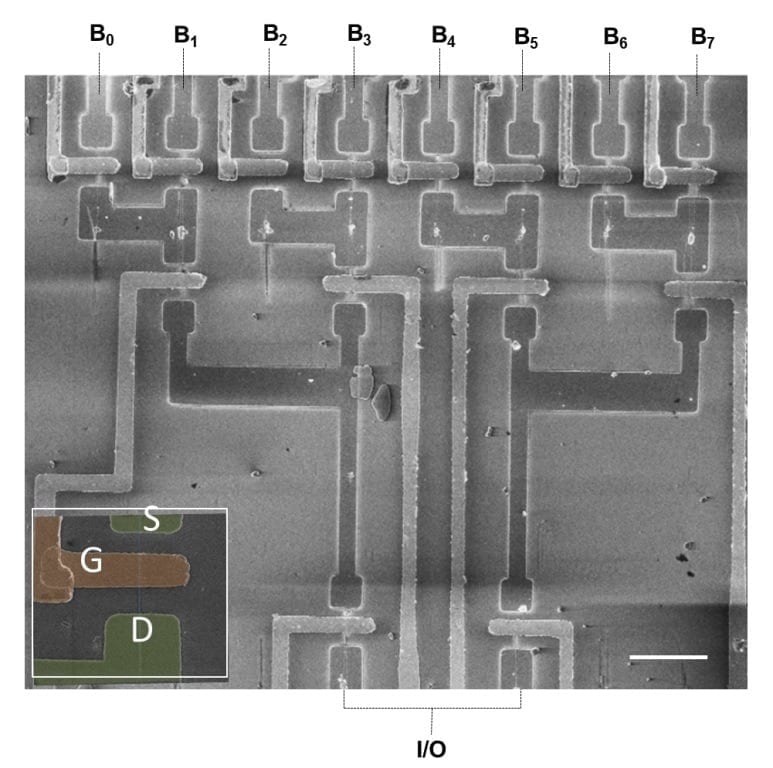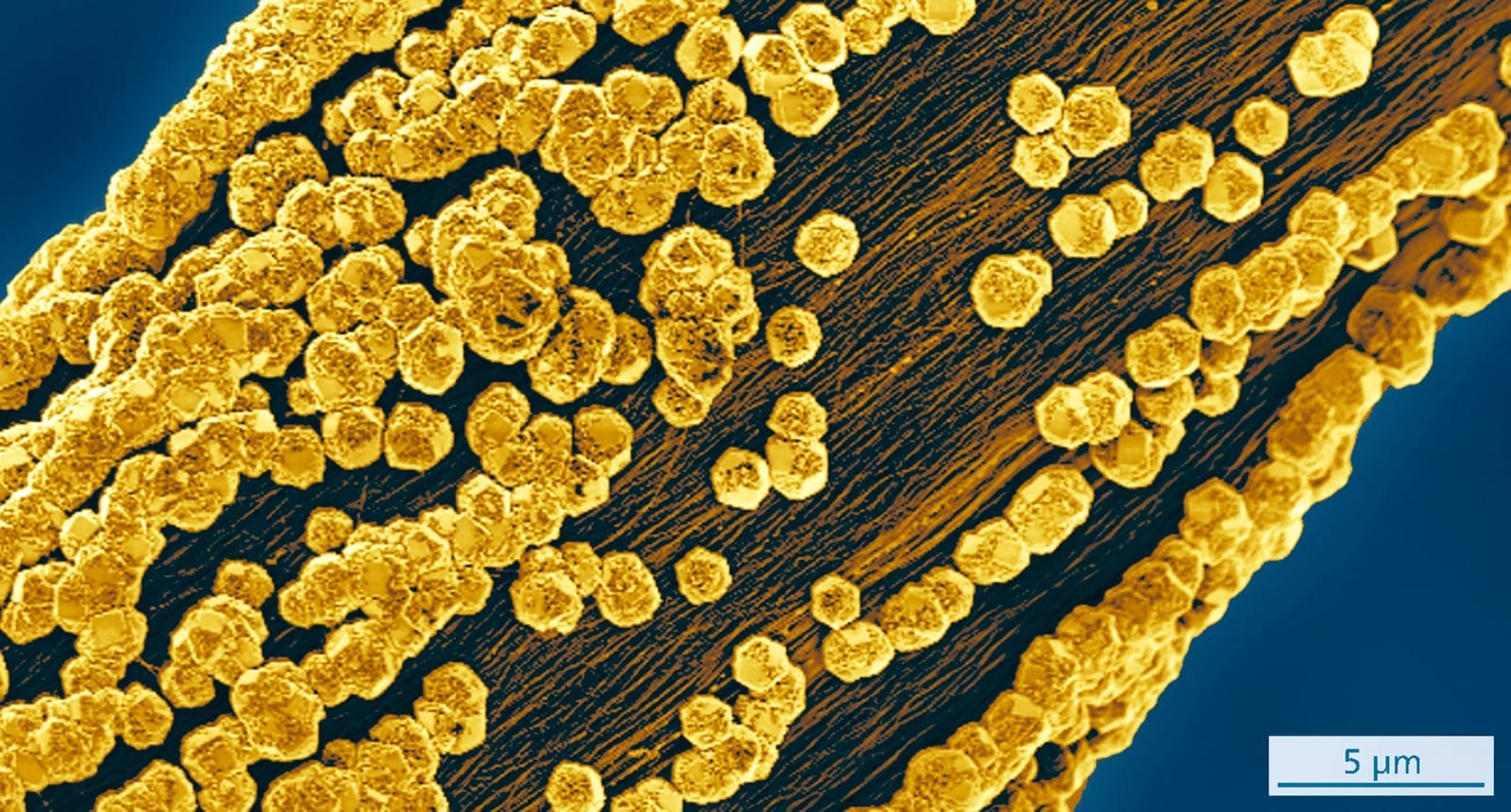
Researchers identify a novel approach to enhance tissue growth
STUDY FINDINGS OFFER PROMISING NEW DIRECTION FOR ORGAN REGENERATION AND TISSUE REPAIR
Because most human tissues do not regenerate spontaneously, advances in tissue repair and organ regeneration could benefit many patients with a wide variety of medical conditions.
Now a research team led by investigators at Beth Israel Deaconess Medical Center (BIDMC) and Dana-Farber/Boston Children’s Cancer and Blood Disorders Center has identified an entirely new approach to enhance normal tissue growth, a finding that could have widespread therapeutic applications.
Their findings were published on-line this week in the Proceedings of the National Academy of Sciences (PNAS).
Tissue regeneration is a process that is not fully understood, but previous research has demonstrated that endothelial cells lining the insides of small blood vessels play a key role in tissue growth. It is also known that these endothelial cells generate chemical messengers called epoxyeicosatrienoic acids (EETs), which stimulate blood vessel formation in response to tissue injury.
In this new research, first author Dipak Panigrahy, MD, an investigator in BIDMC’s Center for Vascular Biology Research, and his colleagues wanted to find out how EETs might participate in organ and tissue regeneration. To answer this question, they created seven different mouse models. The models focused on liver, kidney and lung regeneration; wound healing; corneal vascularization; and retinal vascularization.
“We used genetic and pharmacologic tools to manipulate EET levels in the animals to show that EETs play a critical role in accelerating tissue growth, providing the first in vivo demonstration that pharmacological modulation of EETs can affect organ regeneration,” explains Panigrahy, an Instructor in Pathology at Harvard Medical School. Administering synthetic EETs spurred tissue growth in the research models; conversely, lowering EET levels – by either manipulating genes or administering drugs – delayed tissue regeneration.
The team also demonstrated that proteins called soluble epoxide hydrolase (sEH) inhibitors, known to elevate EET levels, promoted liver and lung regeneration. (sEH is the main metabolizing enzyme of EETs.)
“Our results offer a mechanistic rationale for evaluating sEH inhibitors as novel therapeutics for a number of human diseases such as hepatic insufficiency after liver damage and diseases characterized by immature lung development, such as bronchopulmonary dysplasia,” says Panigrahy, adding that the use of topical sEH inhibitors on the skin might also be useful for the acceleration of wound healing.
The researchers suspected that EETs were stimulating tissue regeneration by way of blood vessel formation, specifically by producing vascular endothelial growth factor (VEGF) to promote vessel growth. As predicted, when the investigators depleted VEGF in the mice, EETs’ effects on organ regeneration disappeared.
“Discovering EETs’ role could be of critical importance to help control the repair of liver, lungs and kidneys,” says senior author Mark Kieran, MD, PhD, of the Division of Pediatric Oncology at Dana-Farber/Boston Children’s Cancer and Blood Disorders Center. “Since diseases of these organs are a major cause of morbidity and mortality in the North American population, the opportunity to modulate the regeneration of healthy tissue could have significant therapeutic implications for many patients.” These findings may also apply to conditions or physical defects that lead to the loss of specialized cells in other organ systems, such as the nervous system and the immune system.
The Latest Bing News on:
Organ Regeneration
- Surrozen Provides First Quarter 2024 Financial Results and Business Updateon May 8, 2024 at 1:25 pm
SZN-043 Phase 1a clinical trial results to be presented at the 2024 European Association for the Study of the Liver (EASL) in MilanPreclinical ...
- Xylyx Bio announces exclusive license agreement with Vanderbilt University for donor organ rehabilitation asseton May 8, 2024 at 1:15 am
About Xylyx Bio: Xylyx Bio is a regenerative medicine company developing innovative approaches for tissue repair and regeneration. Xylyx Bio's mission is to eliminate transplant waitlist mortality.
- Tissue Regeneration and Organ Repair: Science or Science Fiction?on May 6, 2024 at 4:59 pm
The demand for tissue and organ replacement following tissue damage (eg, severe burns) or diseases (eg, cardiomyopathy) is expanding, and, while the number of patients suffering from organ failure ...
- Researchers develop genetic plant regeneration approach without the application of phytohormoneson May 1, 2024 at 6:59 am
For ages now, plants have been the primary source of nutrition for animals and mankind. Additionally, plants are used for the extraction of various medicinal and therapeutic compounds. However, their ...
- In a first, mice brain circuits regenerated using rat stem cellson April 25, 2024 at 8:29 am
Two independent research teams have achieved successful regeneration of mouse brain circuits by cultivating neurons from rat stem cells.
- Promising Muscle Regeneration Signal Discovered In Zebrafishon April 23, 2024 at 11:34 am
A signal that allows zebrafish to regenerate muscle cells has been discovered by researchers in Fribourg, western Switzerland, which could hold prom ...
- New small molecule helps scientists study regenerationon April 22, 2024 at 4:59 pm
Regenerating damaged tissues or organs has been a dream of scientists ... a new molecule that activates a protein involved in regeneration. The tool holds promise for advancing our understanding ...
- Organ regeneration startup names veteran CEO as new leaderon April 17, 2024 at 5:00 pm
The new chief executive of Morphoceuticals will chart the company's path into a relatively new and unknown field: Organ regeneration and tissue repair. Morphoceuticals Inc., a startup venturing ...
- Tissue Regeneration and Organ Repair: Science or Science Fiction?on April 15, 2024 at 5:00 pm
Another great challenge in the field of tissue and organ engineering is achieving the vascularization of 3-D grafts. [21] While cartilage is avascular and skin grafts are thin enough to pick up ...
The Latest Google Headlines on:
Organ Regeneration
[google_news title=”” keyword=”Organ Regeneration” num_posts=”10″ blurb_length=”0″ show_thumb=”left”]
The Latest Bing News on:
Tissue repair
- Which is better? Animal or plant-based protein?on May 9, 2024 at 2:00 am
Our bodies use them to repair muscles and bones and support growth, tissue repair, create hormones and enzymes, provide energy and improve overall health. Animal protein, which is found in foods like ...
- Surrozen Provides First Quarter 2024 Financial Results and Business Updateon May 8, 2024 at 1:25 pm
SZN-043 Phase 1a clinical trial results to be presented at the 2024 European Association for the Study of the Liver (EASL) in MilanPreclinical ...
- Transformative Discovery Could Solve Billion-Dollar Problem of Poorly Managed Wound Healingon May 7, 2024 at 7:50 pm
Scientists have discovered a crucial protein that enhances wound healing and muscle regeneration, a process often impaired by conditions such as diabetes and aging. Researchers have discovered an ...
- Tissue Regeneration and Organ Repair: Science or Science Fiction?on May 6, 2024 at 4:59 pm
At the moment, independently of all ethical consideration, substitution of body parts, different from the first attempts at tissue repair, remains a science fiction scenario. Presentations held ...
- New experimental evidence unlocks a puzzle in vascular tissue engineeringon April 25, 2024 at 9:25 am
Angiogenesis is a process of forming hierarchical vascular networks in living tissues. Its complexity makes the controlled generation of blood vessels in laboratory conditions a highly challenging ...
- Tissue Repair Ltd TRPon April 16, 2024 at 5:01 pm
We sell different types of products and services to both investment professionals and individual investors. These products and services are usually sold through license agreements or subscriptions ...
- Multiple biomaterials for immediate implant placement tissue repair: Current status and future perspectiveson March 29, 2024 at 11:21 am
More information: Xiaoqi Su et al, Multiple biomaterials for immediate implant placement tissue repair: Current status and future perspectives, MedComm – Biomaterials and Applications (2024).
- Sensory neurons play pivotal role in orchestrating tissue repair and regenerationon March 26, 2024 at 5:00 pm
Researchers from Monash University and Osaka University have unveiled a groundbreaking discovery regarding the pivotal role of sensory neurons in orchestrating tissue repair and regeneration ...
- Mechanotherapy: how physical therapists’ prescription of exercise promotes tissue repairon March 24, 2024 at 7:40 pm
This paper reclaims the term “mechanotherapy” and presents the current scientific knowledge underpinning how load may be used therapeutically to stimulate tissue repair and remodelling in tendon, ...
The Latest Google Headlines on:
Tissue repair
[google_news title=”” keyword=”tissue repair” num_posts=”10″ blurb_length=”0″ show_thumb=”left”]










